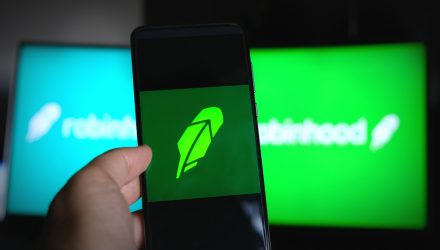Robinhood Markets Inc, the trading app used by retail investors and the driver behind many of the hot stocks of this year, received a less than stellar reception in its debut on the stock markets. While it initially opened at IPO price of $38, it rapidly fell, ultimately to close down 8.4%, reports The Wall Street Journal.
Despite opening on the lower end of the curve of its targeted range at $32 billion, stocks still fell 10% shortly after opening. They recovered for a time, nearing the listing price, before falling and ultimately closing down.
Robinhood, the trading app that made access to IPOs possible for retail investors, decided to sell between 20-25% of its initial offering to its customers.
“One of our company values is ‘participation is power,’” said Vlad Tenev, co-founder and CEO of Robinhood, in an interview with WSJ. “It didn’t seem right for us that IPOs had typically been reserved for the top 1%.”
In addition, Robinhood also allowed employees to sell a portion of their shares immediately, which included Tenev and fellow co-founder Baiju Bhatt, each selling 1.25 million shares in the offering. This netted them $47.5 million each.
The end result was a flurry of shares trading hands all day, making for a volatile day of trading as over 100 million shares were exchanged, almost double the amount that the company and its executives sold in the IPO.
The trading app attempted to dissuade customers from selling shares they received from the IPO immediately by warning of potential restrictions in the future from public offerings if they sold their shares within the first 30 days. This seems to have had little impact.
After the IPO, investors that purchased own about 7% of Robinhood, total. 40% of the A-shares are held by the venture-capital firms DTS Global, Index Ventures, New Enterprise Associates, and Ribbit Capital, which were part of emergency funding earlier this year that allowed them to buy stocks at a 30% discount to the IPO price.
Tenev and Bhatt both still collectively own two-thirds of the voting rights for Robinhood through their special class of Robinhood shares. Tenev held $1.8 billion in the company as of close Thursday, and Bhatt held roughly $2.7 billion.
The Promise of Potential?
Robinhood’s IPO holds many similarities to tech giant Facebook Inc’s 2012 public debut. Back in its debut, Facebook broke with trends as well and sold roughly 25% of its IPO to individual investors. Its stock dropped on the day after its IPO and took over a year to rise back to its original IPO price. Currently, it is worth over nine times its $38 IPO listing price.
ARK Investment Management clearly saw an opportunity and bought up over 1.29 million shares on Thursday, estimated to be worth roughly $45.18 million, through its flagship ETF, ARK Innovation ETF (ARKK), according to Business Insider.
ARKK is an actively managed fund with Cathie Wood as the portfolio manager. It invests in disruptive innovation, which it defines as new technologies that can change the world, and includes exposure to sectors within genomics, industrials, next-gen internet, and fintech.
ARKK currently carries a 0.55% weighting in Robinhood as of 7/30 and has an expense ratio of 0.75%, with net assets of $25.52 billion as of the end of June.
For more on disruptive technologies, visit our Disruptive Technology Channel.

